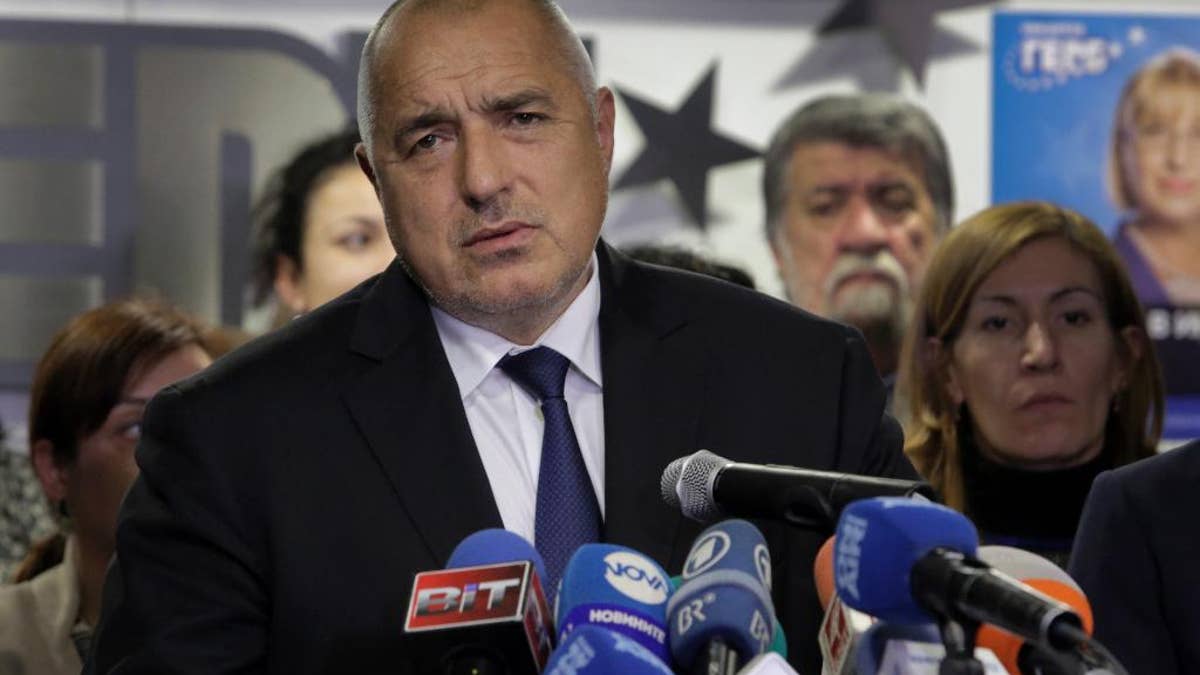
Bulgarian Prime Minister Boiko Borisov announces his resignation, during a press conference in Sofia, Sunday, Nov. 13, 2016. Borisov announced his resignation after exit polls showed his party losing badly in Sunday's runoff presidential election. (AP Photo/Valentina Petrova) (The Associated Press)
SOFIA, Bulgaria – Bulgaria's parliament on Wednesday approved the resignation of the center-right prime minister, who stepped down after the candidate of the opposition Socialist Party capitalized on popular discontent with the government to score a landslide victory in last weekend's presidential election.
Although the presidential vote isn't directly linked to the executive, Boiko Borisov announced that he was stepping down because there wasn't enough popular support for his GERB party.
Parliament on Wednesday voted 218-0 to approve the resignation of Borisov's government.
Borisov, whose party had triumphed in all national elections over the last decade, told legislators that "the vote gave a clear signal that society wants a change."
He said that he would ensure a smooth transition and stay in office until a new government has been formed.
Halfway into its four-year term, Borisov's coalition government has managed to restore political stability after months of anti-corruption protests. But its popularity has faded because of the slow pace of reforms to eliminate graft and poverty, and overhaul the judicial system.
The government's resignation triggers a constitutional procedure, by which the president must offer a mandate to seek to form a government three times. If these attempts fail, the president appoints a caretaker government.
President Rosen Plevneliev, whose term expires on Jan. 22, is barred by the constitution from dissolving parliament because he is in his final three months in office.
It will be up to his successor, Rumen Radev, to dissolve the assembly and declare parliamentary elections within 60 days. Preliminary estimates indicate that an election could be held in in April.
